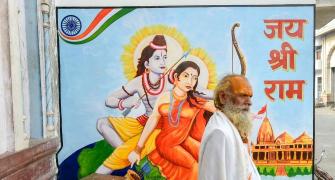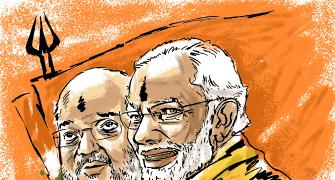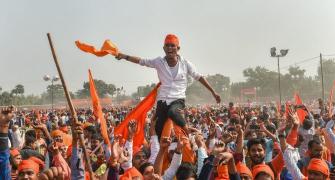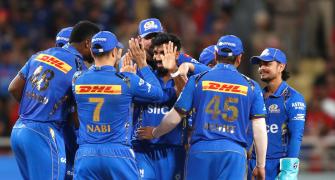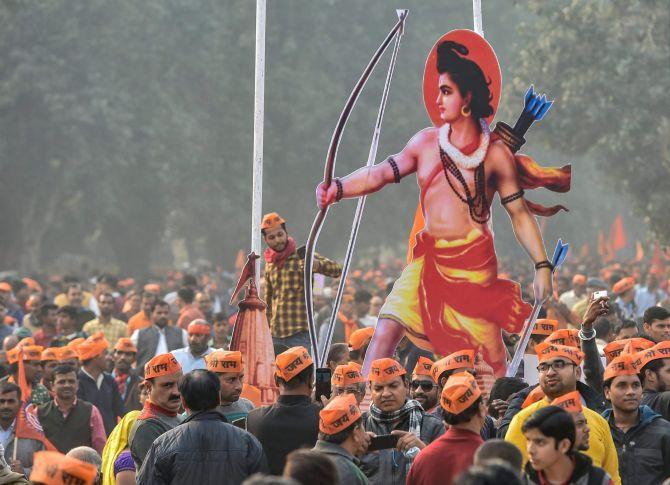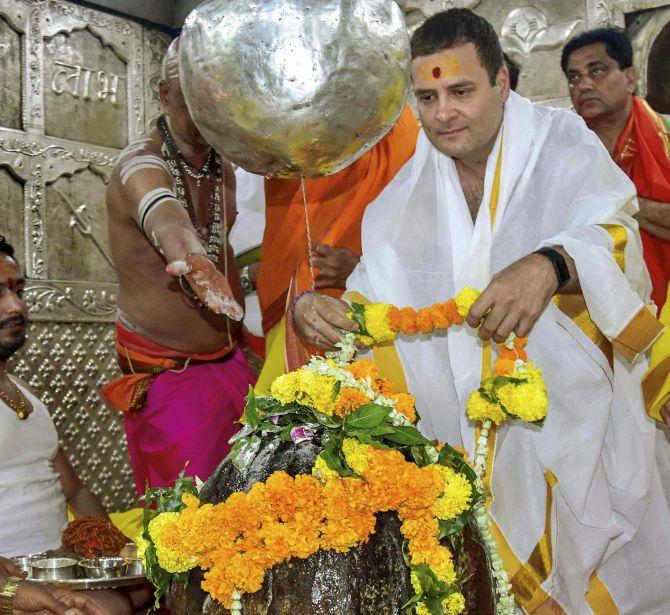The Ayodhya issue is unlikely to die out anytime soon with parties vying to appropriate majority sentiments in varying proportions to suit their political agendas.
Virendra Singh Rawat reports.
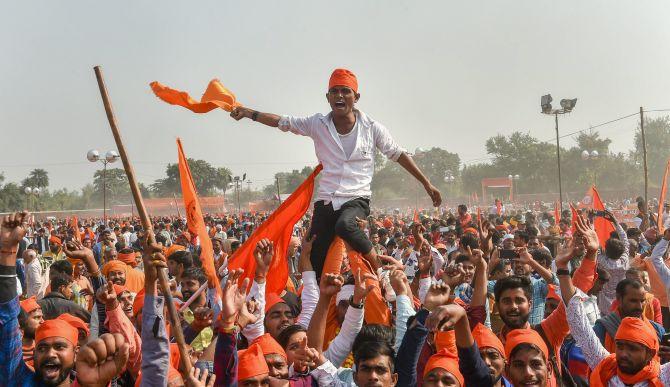
When Shiv Sena chief Uddhav Thackeray paid his maiden visit to Ayodhya last month, he announced that he would become a regular visitor to the temple town.
Hundreds of Shiv Sainiks were ferried aboard two special trains from Maharashtra for Thackeray's two-day itinerary, which took in a public meeting and obeisance to the makeshift Ramlala temple on the grounds of the demolished Babri Masjid.
This special trip by the head of a regional party to Ground Zero of Hindutva politics was symptomatic of the political power play around the Ayodhya issue in the run-up to the 2019 Lok Sabha elections.
Not to be outdone, the Vishwa Hindu Parishad, a frontrunner of the temple movement, staged a show of strength on November 25, seeking an early construction of the Lord Ram temple via an ordinance, also attacking the ruling Bharatiya Janata Party while it was about it.
What did the Congress and other parties do? They played safe, weakly blaming the BJP and the Sangh Parivar for raking up the temple issue to inflame emotions for electoral gains.
Not that this supposed outrage stopped the Congress from opting for a soft Hindutva line, with party President Rahul Gandhi proclaiming himself a 'Shiv Bhakt', visiting temples and even declaring his gotra (clan).
In other words, the Ayodhya issue is unlikely to die out anytime soon with parties vying to appropriate majority sentiments in varying proportions to suit their political agendas.
The issue also has acquired the characteristics of a Bollywood caper. This includes Prince Yakub Habeebuddin Tucy, the self-proclaimed descendant of the last Mughal emperor Bahadur Shah Zafar, and the Uttar Pradesh Central Shia Waqf Board chairperson Waseem Rizvi.
Tucy has supported an out-of-court settlement, while Rizvi has demanded the disputed site be handed over to Shias, since the demolished structure was built by Mughal emperor Babur's Shia army commander Mir Baqi. Bizarrely, he supports a temple at the site.
Much now depends on the Supreme Court. On October 29, the apex court had turned down pleas for an early hearing in the Ayodhya title dispute and posted the matter for deciding on the hearings in the first week of January 2019.


